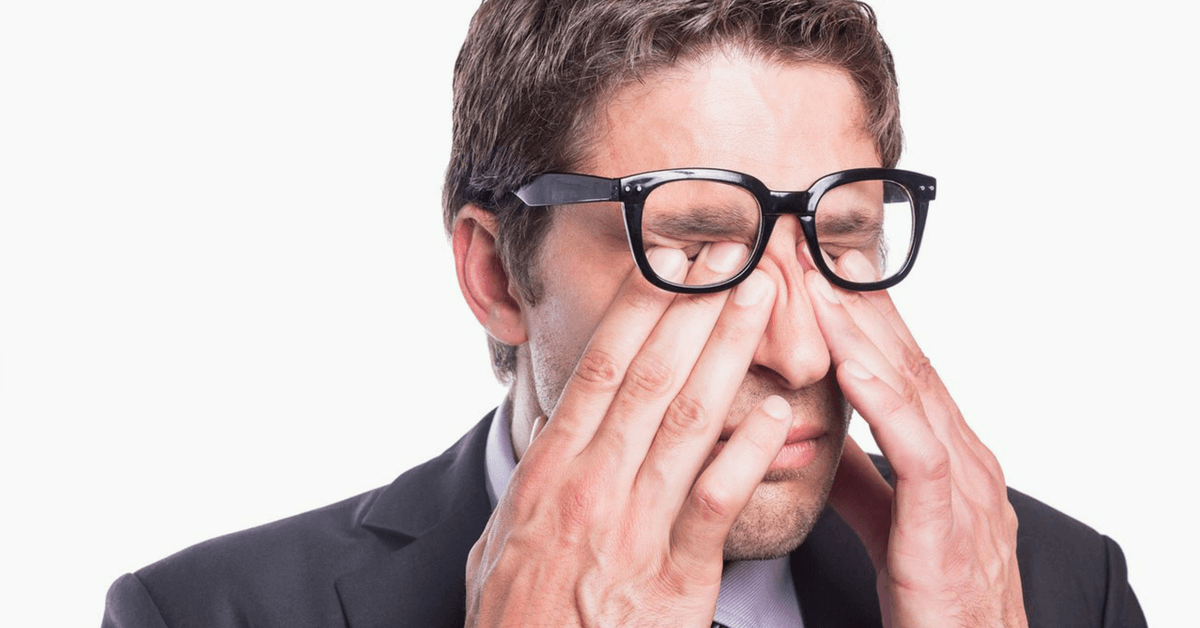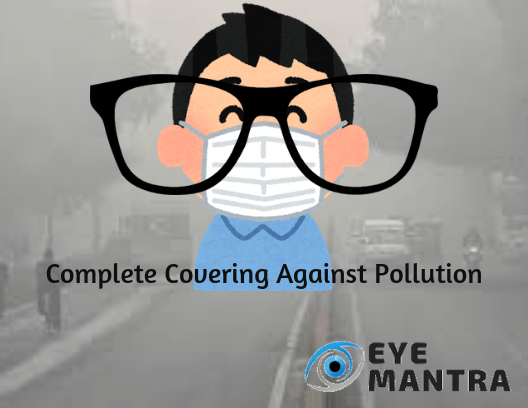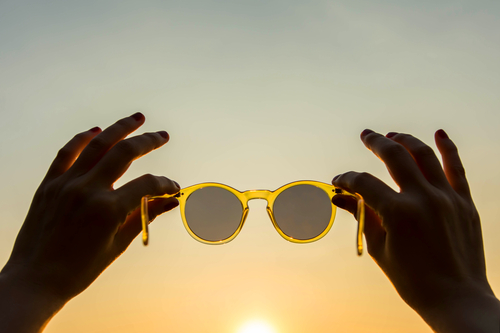Our eyes are one of the most delicate organs of our body. They are prone to irritations and effects of allergies, chemicals, and pollutants in the air. Some people might notice their eyes are itchy, dry, and red on the days when air quality is worse. Eye Care while living in heavy pollution is a significant requirement. Pollution is known to work as an invitation when it comes to infection and diseases which harms eye health and care on a big scale.
Especially Air Pollution is considered amongst the top 5 causes bringing a variety of eye diseases for all age groups. And it especially hurts eye care in the elderly. The rise in pollution has lead to perpetually irritating and vicious eye irritations. This, in turn, leads to redness of the eyes, watery eyes and burning sensation. The air pollution and its ill effect on the eyes are mainly caused by the availability of pollutants consisting of nitric oxide, sulfur, and nitrogen dioxide. The presence of such chemicals in quantities exceeding limits irritates the eyes.
Air pollutants do create temporary eye irritations. But our eyes normally clear up as the pollution levels reduce. However, people residing or working in areas of high pollution are three to four times more likely to develop an eye condition called dry eye syndrome. Dry eye syndrome occurs when there are insufficient tears to lubricate the eye. Dry eyes can be a chronic condition, but there are prescription treatments available to keep your eyes healthy and prevent your vision from being affected.
If you wish to protect your eyes from a variety of ailments, proper eye care from pollution is a must.
Contents
Effects of Environmental and Air Pollution on the Eye
Pollution has impacted human health in numerous ways. But when it comes to air pollution, concerning the eyes and the vision, there has been much evidence to suggest that pollution is hurting the eye and eye care.
Our eyes are incredibly vulnerable and highly sensitive. If you’ve ever been through the discomfort caused by a tiny particle of dust or sand in your eyes (which everybody would have experienced at least once), then you know the feeling of irritation involved. Though pollution is a little trickier than dust and sand, it can have a worse effect on our eyes in the long run.
Signs of air pollution can range from minimal and zero symptoms to persistent discomfort and eye irritation. There may also be specific situations. Especially for contact lens wearers, when the eyes may be adversely affected by pollution. Despite the presence of pollution in many indoor and outdoor environments, the effects of pollution, on our eyes, get overlooked.
The experts have pointed out that the children or those aged between 20 and 40 are at greater risk of eye-related problems caused by pollution. This is because they stay outdoors for longer periods and are more exposed. Whereas, eye care for the elderly has improved.
The Eye Doctor Delhi clarified that although pollution-related eye problems are not life-threatening, they can cause drastic damages.
Common Damages caused by Pollution to Eye Care
- Watery eyes
- Burning sensation
- Itching
- Discomfort
- Sore eyes
- Redness of eyes
- Swelling
- Eye allergies: characterized by itching, redness, discharge, eyelid swelling, blurring of vision and increased risk of infection
Chemical Conjunctivitis
Apart from PM 2.5 and PM 10 which are known to be the most harmful air pollutants. The air contains sulfur dioxide, nitrous oxide, carbon monoxide and other chemicals that are equally harmful to the eyes.
All these chemicals cause conjunctivitis like symptoms, that is why it is called chemical conjunctivitis. The pollutants and chemicals irritate the outer layer of the eye eyes called Conjunctiva.
The conjunctiva is in direct contact with the environment and is, therefore, the most vulnerable to air pollutants.
Dry Eye Syndrome

Eyes need hydration, just like the rest of our body and organs. To stay hydrated, the eye ducts produce tears that moisten the eyeball. These natural tears are not only water. They consist of oil, and mucus as well. The water is the component that moisturizes. Oil helps keep the water from evaporating too quickly. And lastly, the presence of mucus ensures that the moisture is spread evenly, across the entire eye. Without all these three, working together, our eyes would invariably be itchy and dry. Therefore, during heavy pollution days, eye care gets severely affected.
Dry eye syndrome is an eye disease that can be caused by either of the two things. One that the tear production in the eyes is low. Or when the tears get evaporated very quickly. Both these situations result in dry and inflamed eyes.
Though the exact causes of the pollution chemicals on eyes and how they eventually lead to dryness, are yet to be found. Various studies have suggested that it may something to do with the lack of humidity in highly polluted areas. People residing in areas that have good humidity are less likely to suffer from pollution-related dry eyes. Therefore eye care in pollution there is easier.
Cornea Damage
There are urban areas where air pollution is found in the form of smog (a combination of smoke and fog). Fog may be harmless enough, but the addition of smoke and industrial pollutants can be incredibly harmful to the eyes.
In the more severe cases, Dry eyes can even damage the surface of your eyes. And it may ultimately lead to vision problems.
Damage in the cornea happens because of the exposure to pollution for a longer duration. It happens over a few years, it is not an immediate effect. A long and persistent Dry eye can damage the cornea. That affects vision in the long run. And rubbing eyes while having irritation would definitely harm the cornea.
Eventually, the damage cause may be so severe that one may need to look for Cornea Surgery.
Eye Care in Pollution
As we have seen above, the eyes are especially vulnerable to the effects of pollution. So try to not let the pollutants in the air add to your eye conditions!
First and foremost, accept how pollution and smog are affecting your eye care. Symptoms like redness, eye irritation, and blurred vision are not to be ignored. Call your Eye Doctor Delhi immediately if you experience any of the symptoms. Or if the itchiness and the irritation persist for a longer duration.
If you wear contact lenses, clean your lenses thoroughly to ensure that the lenses are disinfected and any particles are removed. If possible, avoid wearing the contact lenses when you feel discomfort or itchiness in the eye. Protective zero-powered glasses with contact lenses may be useful if the air quality is low and you have to step out.
Avoid using eye makeup if you are feeling itchiness and uncomfortable in the eyes. Wearing Kajal and mascara often worsen eye allergies. They may cause infections, sometimes. Don’t forget to remove all eye make before you sleep, to decrease the ill effects of the chemicals.
More recommendations to help you check and control the ill-effects of smog for your eyes.
Some Do’s
- Wash your hands frequently and thoroughly with clean, running water. Every morning, after reaching home from school/college/work and before going off to sleep.
- Keep your body well-hydrated by taking plenty of water. Staying hydrated is essential for supporting tear formation function. It becomes all the more crucial when external factors like chemicals and smog make you prone to dry eyes.
- Wear some protective eyeglasses and shades, whenever you have to step out into the pollution. It will help minimize the exposure to the pollutants.
- Include foods that are rich in Vitamin A. Green leafy vegetables, especially Spinach and Bright-coloured vegetables like yellow pepper and carrots are beneficial for your eyes. And that is how they are known as Eye Nutrition Foods.
- Also, include foods that are rich in Omega 3 and antioxidants. These are fish, green leafy vegetables, almonds, walnuts, and berries. They are extremely good for the eyes.
- Install a good-quality air filtration system for your home. It may sound an expensive suggestion but think of the money you would be saving by not requiring frequent visits to the doctor.
- Have a humidifier in your home.
What to Avoid
- DO NOT use decongestant eye formulation without medical supervision.
- Try to avoid going out during peak smog hours. Such as early in the morning. It’s advisable to stay indoors during this time.
- Avoid rubbing your eyes. Even if some particles enter them.
- Try to avoid getting exposed to smog and pollution while using public or private transport. Keeping the windows rolled up can save you from outside smog.
Consult your eye specialist. She may recommend you the best lubricating drops which can help increase tear formation.
Living in times and age when air pollution is almost everywhere. Things are not easy on the body, let alone the eyes. For the time being, we have to keep protecting our eyes from harsh conditions.
The best way to treat them is to visit your eye care professional and get your eyes checked regularly. She will be able to advise the best care by adding tears, conserving tears, increasing tear production, and treating the inflammation of the eyelids or eye surface that may contribute to the dry eyes.
And the best way is to visit our website Eyemantra.
To book an appointment call at +91-8851044355. Or mail us at eyemantra1@gmail.com.
Our other services include Retina Surgery, Specs Removal, Cataract Surgery, and many more.
Related Articles:
Do’s and Dont’s for protecting your eyes while playing holi
Convergence Exercises: Symptoms of Insufficiency & Treatment


